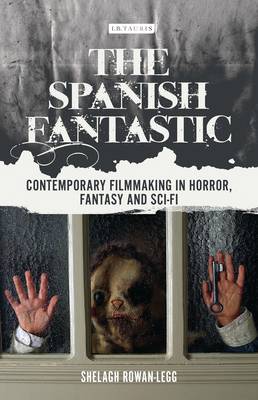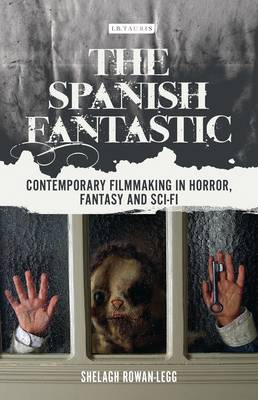
- Afhalen na 1 uur in een winkel met voorraad
- Gratis thuislevering in België vanaf € 30
- Ruim aanbod met 7 miljoen producten
- Afhalen na 1 uur in een winkel met voorraad
- Gratis thuislevering in België vanaf € 30
- Ruim aanbod met 7 miljoen producten
Zoeken
€ 72,95
+ 145 punten
Uitvoering
Omschrijving
In recent decades, the Spanish 'fantastic' has been at the forefront of genre filmmaking. Films such as The Day of the Beast, the Rec trilogy, The Orphanage and Timecrimes have received widespread attention and popularity, arguably rescuing Spanish cinema from its semi-invisibility during the creativity-crushing Franco years. By turns daring, evocative, outrageous, and intense, this new cinema has given voice to a generation, both beholden to and yet breaking away from their historical and cultural roots. Beginning in the 1990s, films from directors such as Alex de la Iglesia, Alejandro Amenabar, and Jaume Balaguero reinvigorated Spanish cinema in the horror, science fiction and fantasy veins as their work proliferated and took centre stage at international festivals such as Sitges, Fantasia International Film Festival and Fantastic Fest. Through an examination of key films and filmmakers, Shelagh Rowan-Legg here investigates the rise of this unique new wave of genre films from Spain, and how they have recycled, reshaped and renewed the stunning visual tropes, wild narratives and imaginative other worlds inherent to an increasingly influential cinematic field.Its emergence is part of a new trend of postnational cinema, led by the fantastic, which approaches the national boundaries of cinema with an exciting sense of fluidity.
Specificaties
Betrokkenen
- Auteur(s):
- Uitgeverij:
Inhoud
- Aantal bladzijden:
- 224
- Taal:
- Engels
- Reeks:
Eigenschappen
- Productcode (EAN):
- 9781350242425
- Verschijningsdatum:
- 25/03/2021
- Uitvoering:
- Paperback
- Formaat:
- Trade paperback (VS)
- Afmetingen:
- 156 mm x 234 mm
- Gewicht:
- 322 g

Alleen bij Standaard Boekhandel
+ 145 punten op je klantenkaart van Standaard Boekhandel
Beoordelingen
We publiceren alleen reviews die voldoen aan de voorwaarden voor reviews. Bekijk onze voorwaarden voor reviews.











